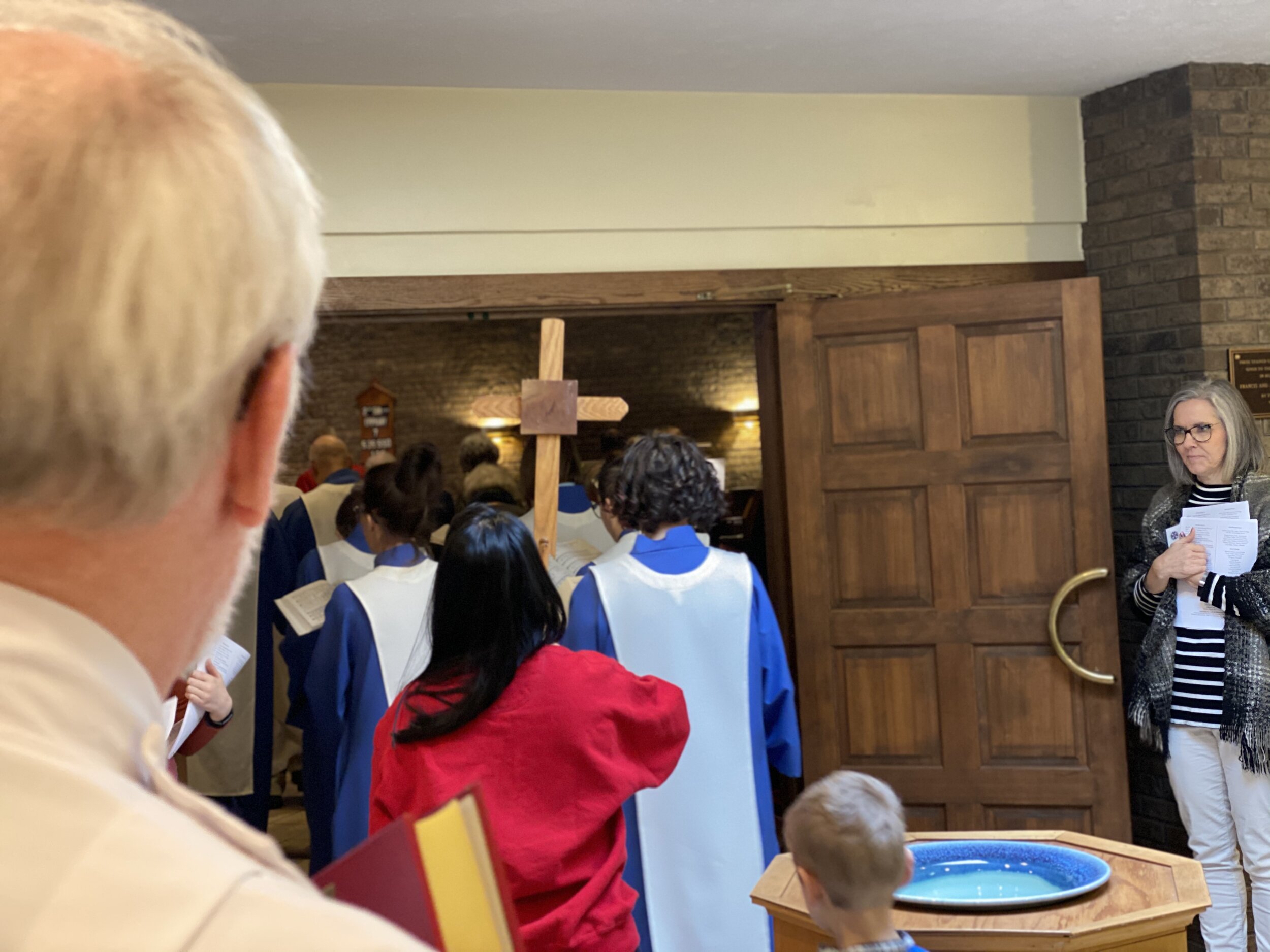
Welcome to St. Thomas à Becket Episcopal Church
Our parish is named for a 12th-century saint, the Archbishop of Canterbury who was killed for opposing royal authority over the church. We were founded on Thomas Becket’s feast day (December 29) in 1978.
Clergy and Staff
The Very Reverend Michael L. Delk, Rector
A native Kentuckian, Fr. Michael took his Bachelor’s in Religion magna cum laude with departmental Honors from Transylvania University in Lexington, Kentucky, and his Master’s in Divinity degree with Honors from Virginia Theological Seminary in Alexandria, Virginia. During his time in seminary, Father Michael spent a semester abroad at Oxford University, and completed his Clinical Pastoral Education at the Hospital of the University of Pennsylvania in west Philadelphia.
Over the past 25 years, he has served as the Assistant to the Rector at The Episcopal Church of the Good Shepherd in Lexington, Kentucky; as Canon for Youth, Young Adults, and Communications at The Cathedral of St. Philip in Atlanta, Georgia; as Rector of Hickory Neck Episcopal Church in Toano, Virginia, and as Rector of St. Luke’s Episcopal Church, in Anchorage, Kentucky (east Louisville).
Father Michael has two adult children, Ben and Ed. In his spare time, he enjoys reading, movies, day hikes in the mountains, and playing video games with his sons. He began his tenure as Rector of St. Thomas à Becket on August 1, 2023.
The Reverend Al Prichard, Deacon
Deacon Al was ordained as a vocational deacon in 2011 and assigned to St. Thomas à Becket by Bishop Mike Klusmeyer. Deacon Al has been a member of the parish since the early 1980s and was an active lay person prior to ordination. Graduating from Davis and Elkins College with a degree in History and Political Science, initially Al taught high school in rural Tucker County in West Virginia. Later he completed a degree in accounting from West Virginia University. He has also completed graduate coursework from Pittsburgh Theological Seminary and from West Virginia University. Al is retired from a 30-year career in public broadcasting, having served in various capacities, culminating with a position as Station Manager with the West Virginia Public Television station in Morgantown. Deacon Al’s ministry has focused on addressing the problems of the homeless and those with food insecurity. He has served on the boards of Bartlett Housing Solutions, Morgantown Community Kitchen, and Empty Bowls Monongalia. He has a gift for preaching and assists liturgically with worship at St. Thomas à Becket. He participates on the diocesan level as a member of the Commission on Ministry and with the West Virginia Iona School, the diocesan formation program. Recently, he chaired the Bishop Coadjutor Search and Nominating Committee. Deacon Al and his wife, Cheryl, have two children and enjoy their grandchildren greatly.
Dr. William Haller, Director of Music
Dr. Haller is professor emeritus of organ and organ literature at West Virginia University. He received his Doctor of Musical Arts degree from North Texas State University and both his master’s and bachelor’s degrees from the Eastman School of Music. Before coming to St. Thomas à Becket, Bill served as director of music ministry at Edgewood Evangelical Lutheran Church in Wheeling, W.Va. Until 2002, he was the organist at the Worthington United Methodist Church in Worthington, Ohio. He also was the organist for the Columbus Symphony. Dr. Haller’s honors include winning the National Organ Playing Competition in Fort Wayne, Ind., in 1965, and tying for second place at the International Organ Playing Competition in Chartres, France, in 1974. Since 1982, Dr. Haller has been a fellow of the American Guild of Organists.
Natalie Homer, Parish Administrator
Natalie joined St. Thomas à Becket in 2018. Originally from Idaho, she moved to West Virginia in 2015 to pursue a Master of Fine Arts Degree in Creative Writing at West Virginia University. Previous jobs include teaching college composition and being a librarian at a public library. In addition to St. Thomas, she also works at West Virginia University Press, and is a published poet. Her husband Tim is a youth pastor in Waynesburg, PA.
Bernie Schultz, Senior Warden
Jeff Fedan, Junior Warden
Beth Royall, Treasurer
Kevin Steurer, Vestry Secretary
The Very Reverend Michael Delk
The Reverend Al Prichard
Dr. William Haller
Natalie Homer
Inclusion and Accommodation
We are fully LGBT+ inclusive and welcoming. The Episcopal Church welcomes everyone, regardless of their identity or orientation. We embrace our diversity and create a culture of respect, acceptance, and love.
We have no stairs or difficult transitions in our space. Our worship space and restrooms accommodate wheelchairs and walkers. ADA-compliant hearing assistance devices are available upon request.





